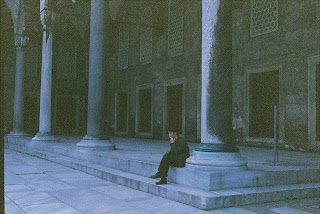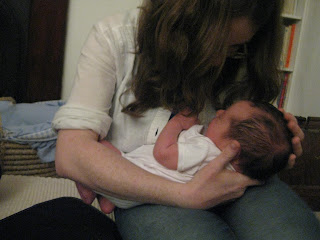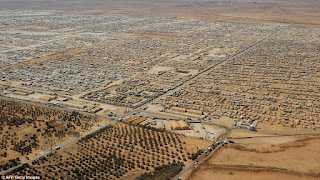The person. Then & Now.
The old man watches the boy on a daily basis. From somewhere
inside that obedient row of brown and gold that forms the continuum of his
teeth, he utters words that are unexpected to the boy’s mother because they are
snatched from fading frames of other times.
He walks towards the boy with outstretched arms, in what the
mother sees as a faltering, sleepy stupor. His toes are rasping as he touches
the beginning of the spring-lit, dilapidating curb. His grey jumper is a
Barentian expanse, with the sounds of fluming whales caught within its knit.
He speaks to the boy in a language never mastered, yet with
all the tapestry and texture of a person well versed in language's ultimate beginnings,
causes and limits. He asks the boy where his top tooth has gone. The boy
appears to understand before the sentence has finished and retorts with the
spark of a secret spirit shared inside his pupils.
The man removes a leafy hand from the innards of his pocket,
and shuffles through the coins, with the attention of a late-night newspaper
editor scrutinising the work of an inferior. He apportions three of the
shiniest silver ones, dropping them into the boy’s palm, which is already
outstretched in reception. The boy's eyes beam and his toothless mouth crocks,
and between them, the mother thinks she might have seen the sort of elation you'd expect a future self to have when he finally communes with a past one,
and visa-a-versa.
The mother catches on, and after a customary beat she
reaches for any equivalents she knows and praises the man’s generosity. When
their strides have taken them out of earshot, the boy posits that the man “doesn’t
go out for a reason like us”. The mother asks him what he means. “I mean, he
doesn’t go out to Arabic school, or the Horniman Museum like us. He just goes
for a stroll”. “Maybe he’s visiting a friend”, maybe, the boy concedes, slightly
incredulously. “And he has to get food. We all have to get food” the mother
continues. “Yes, maybe he sometimes goes out to get food”.
The conversation passes, resting on other things, and then the
boy returns to the old man, telling his mother he knows why he gave him the
coins. The mother looks done. “Why?” “Because of my teeth”. The mother exclaims
“I didn’t even think of that” and the boy chuckles, looking sideways. “You just
have to think more”, words catching a channel and sailing ahead of them between the rows of houses and cars.



Comments
Post a Comment